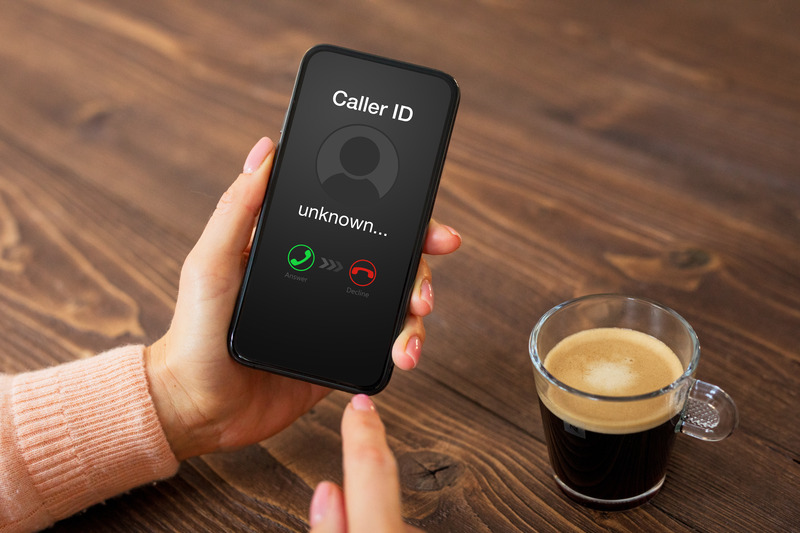How to Steer Clear of Online Seller Scams
The convenience of selling an RV online has transformed the way we approach the marketplace. Websites like RVUSA have become popular platforms for connecting sellers with potential buyers across the country. However, with this ease of access comes the increased risk of encountering scams and fraudulent activities. Our comprehensive guide aims to arm you with the knowledge and tools necessary to navigate the online selling process safely and successfully.
Most Common Scams in Online RV Sales
The Inspection Report Scam
A classic scammer maneuver involves posing as a potential buyer and insisting the seller pay for an inspection report. However, purchasing an inspection is unequivocally the buyer’s responsibility. This ensures the reliability and impartiality of the report, safeguarding the buyer’s interests without unfairly burdening the seller. If a prospective buyer demands you cover the cost of an inspection, it’s a glaring red flag.
Counterfeit Cashier’s Checks and Money Orders
Some scammers will use fake cashier’s checks or money orders. Traditionally trusted for their security and backed by reputable institutions, both can be expertly forged, leaving sellers vulnerable. Scammers might present a counterfeit cashier’s check or money order as payment, convincing the seller of its legitimacy due to the perceived backing by a bank or financial entity. By the time the forgery is discovered, the scammer — and the RV — could be long gone. It is essential to verify the authenticity of any cashier’s check or money order with the issuing institution before proceeding with the transaction or transferring ownership of the RV.
The Overpayment Scheme
Another common scam is the overpayment trick. Here, the so-called “buyer” sends a check exceeding the RV’s selling price. They then request a refund of the difference. Unfortunately, by the time the seller realizes the check is fraudulent, the scammer has disappeared with the “refunded” amount, leaving the seller to face financial repercussions.
Fake Representatives
In this scenario, the potential buyer claims they cannot inspect the RV personally, whether this is because they live far away or have health concerns. Instead, they propose sending a “representative” to view the RV on their behalf. This intermediary might be part of a scam aiming to exploit the seller, sometimes through a bad check or to get the title of the unit without paying for it.
Recognizing Red Flags
When selling an RV online, vigilance is your best defense. Here are key red flags to watch for:
Reluctance to Talk on the Phone: Scammers often avoid phone conversations, preferring the anonymity of texts or emails. Insist on a phone call to gauge the sincerity of the potential buyer.

Poor Grammar and Spelling: Many scammers are located outside of the US, leading to noticeable errors in written communication. While not a definitive sign, it’s a cue to proceed with caution.
Suspicious Stories: Be wary of buyers with elaborate stories, usually ones that tug on your heartstrings, such as being in the hospital or stationed overseas. These tales are often told to garner sympathy and lower your defenses.
High Pressure Tactics: Scammers sometimes try to rush the seller into a sketchy situation. They’ll pressure sellers into making decisions or responding to requests for personal information without time to think things through. Any attempt to force a quick sale should raise suspicions.
Too Good to Be True: If an offer seems overly favorable without any logical basis, it’s likely a scam. Scammers may offer an amount much higher than market value to convince sellers to send their personal or financial information to ensure the sale. Trust your instincts.
RVUSA’s Commitment to Safety for Sellers
We work hard to provide a secure platform for selling an RV online. We’ve implemented several measures to shield our sellers from scammers:
Email Monitoring: We prevent individuals from sending messages through our site once they’ve reached a certain threshold of form submissions. Contacting many sellers at once is a common tactic used by scammers to get as many fraudulent offers as possible in the air at once, in hopes that some of the sellers will fall for it.
Scammer Alerts: Through our seller login area, we issue alerts about known scammers. Our goal is to keep our sellers informed and vigilant.

Understanding RVUSA’s Limitations
While RVUSA is committed to providing a secure and user-friendly platform for selling an RV online, it’s important to understand the boundaries of our capabilities. This awareness helps sellers take additional personal precautions when necessary.
Direct Communication via Phone
When a seller opts to include their phone number in an ad, they open a direct line of communication with potential buyers. This personal touch can be beneficial for honest transactions, allowing for real-time discussions and negotiations. However, this also means that calls and texts bypass the protective measures we have in place for messages sent through our platform.
We are also unable to block scammers from contacting sellers via their publicly listed phone numbers. Sellers should remain vigilant and apply the same caution to phone communications as they would to online interactions.
Our Role in the Sales Process
It’s crucial to understand that RVUSA functions as a listing platform, like a digital newspaper classified section. Our primary role is to connect sellers with potential buyers by providing a space to advertise RVs for sale. We do not partake in the sales process itself. This means that, much like Facebook Marketplace, we do not vet buyers, mediate transactions, or involve ourselves in any other facet of the sale.
This level of involvement is designed to maximize flexibility and control for sellers while offering a broad audience of potential buyers. However, it also places the responsibility for due diligence on the seller. We encourage sellers to leverage the guidance and tools we provide for scam awareness and to conduct their own thorough vetting of potential buyers.
How to Report a Scam
If you encounter a scam, reporting it is not just about seeking justice for yourself; it’s about protecting the entire community. You can report fraud online to the Federal Trade Commission or the FBI’s Internet Crime Complaint Center. Additionally, scammers found on RVUSA can be reported through our contact form.
Selling an RV online can be an easy and convenient experience. By staying informed about common scams, recognizing red flags, and using protective measures, you can navigate the digital marketplace with confidence. Remember, the most effective safeguard against scams is a well-informed seller. Stay vigilant, stay informed, and let’s keep the online RV selling community a safe space for all.








